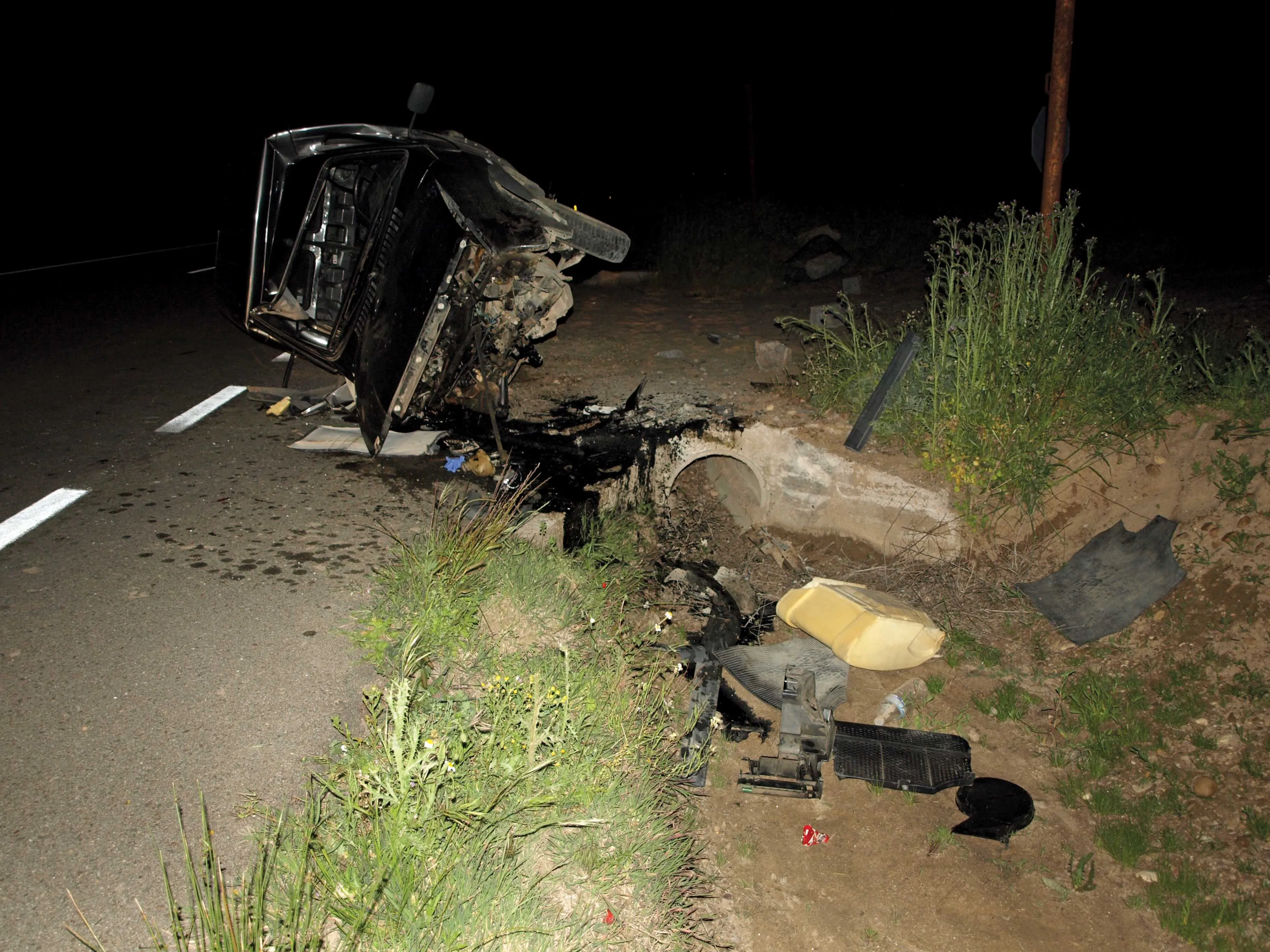This new analysis has been published by the European Transport Safety Council (ETSC). According to the ETSC data, 2014 showed the lowest annual reduction in EU road deaths since 2001. In all 25,845 people were killed in road crashes in the 28 nations of the EU during 2014. This represented a decrease of just 0.6% compared to 2013. EU member states now need to cut deaths by almost 8% each year until 2020 to meet the target set in 2010 to halve deaths within a decade.
July 10, 2015
Read time: 4 mins

The EU’s targets for road safety are at risk due to increased fatalities in France, Germany and UK
This new analysis has been published by the1197 European Transport Safety Council (ETSC). According to the ETSC data, 2014 showed the lowest annual reduction in EU road deaths since 2001. In all 25,845 people were killed in road crashes in the 28 nations of the EU during 2014. This represented a decrease of just 0.6% compared to 2013. EU member states now need to cut deaths by almost 8% each year until 2020 to meet the target set in 2010 to halve deaths within a decade.
The ETSC data also shows that 203,500 people were recorded as seriously injured by the police in the 23 EU countries that distinguish between serious and slightly injured in their data. Worryingly, this represents an increase of 3% compared to 2013.
Slovenia is receiving the 2015 Road Safety Performance Index (PIN) award for substantial long term progress and high level political commitment to road safety.
France, Ireland, Germany and the UK were among the 12 EU member states that saw an increase in the number of road deaths last year compared to 2013. But on a positive note Croatia, Slovenia, Finland, Greece, Luxembourg and Malta all recorded reductions of around 10% or more.
Antonio Avenoso, executive director of the ETSC said, “These latest figures reinforce the message that road safety requires consistent political support at the highest level, constant vigilance on enforcement and network safety management, and the need to respond to evolving challenges such as increased numbers of people walking and cycling and an ageing society. It’s very disappointing to see the UK, a road safety champion, dropping its guard in recent years: we are now seeing the fallout with progress slowing and even going into reverse.“
“Slovenia, our 2015 PIN Award winner, deserves huge credit for its commitment to robust targets, establishment of a dedicated road safety agency and a detailed plan of action. Nevertheless, Slovenia has a lot of work still to do to close the gap with the safest countries.”
Slovenia has reduced annual road deaths by 61% since 2001. The country’s long-term progress and high-level commitment to road safety will be recognised at an event being held in Brussels. ETSC will present its annual Road Safety Performance Index (PIN) award to Peter Gašperši, Slovenia’s Minister of Infrastructure.
The numbers of people suffering life-changing injuries have fallen more slowly than deaths for several years and even increased last year. The ETSC says it is concerned that a planned EU strategic target to reduce serious injuries appears to have been dropped, despite being repeatedly promised by the current European Commission.
The ETSC is calling for the EU to commit to making key safety technologies such as Automated Emergency Braking (AEB), overridable Intelligent Speed Assistance (ISA), intelligent seat belt reminders for passenger seats and an interface for alcohol interlock devices to be made standard on all new vehicles. A proposal for revised vehicle safety standards is expected later this year.
There is concern in many quarters that not enough is being done to tackle the issue of distracted driving. Research suggests a worrying attitude by many drivers to the use of cellphones while behind the wheel, whether for making calls or worse still, sending texts, emails and using the internet. Although the risk of using a cellphone while driving is well known, it is still widespread and particularly amongst young drivers. There have been calls both to toughen penalties as well as enforcement, while boosting awareness of the risks.
Similarly, research shows that the risk from drivers under the influence of drugs to be a widespread problem in the EU. However measures to allow police to detect drug use by drivers such as testing kits are only available in some countries at present.
The 2015 ETSC PIN report can be downloaded from %$Linker:2 External <?xml version="1.0" encoding="utf-16"?><dictionary /> 0 0 0 oLinkExternal http://etsc.eu/3asD4 Visit the 2015 ETSC Pin Report false http://etsc.eu/3asD4 false false %>
This new analysis has been published by the
The ETSC data also shows that 203,500 people were recorded as seriously injured by the police in the 23 EU countries that distinguish between serious and slightly injured in their data. Worryingly, this represents an increase of 3% compared to 2013.
Slovenia is receiving the 2015 Road Safety Performance Index (PIN) award for substantial long term progress and high level political commitment to road safety.
France, Ireland, Germany and the UK were among the 12 EU member states that saw an increase in the number of road deaths last year compared to 2013. But on a positive note Croatia, Slovenia, Finland, Greece, Luxembourg and Malta all recorded reductions of around 10% or more.
Antonio Avenoso, executive director of the ETSC said, “These latest figures reinforce the message that road safety requires consistent political support at the highest level, constant vigilance on enforcement and network safety management, and the need to respond to evolving challenges such as increased numbers of people walking and cycling and an ageing society. It’s very disappointing to see the UK, a road safety champion, dropping its guard in recent years: we are now seeing the fallout with progress slowing and even going into reverse.“
“Slovenia, our 2015 PIN Award winner, deserves huge credit for its commitment to robust targets, establishment of a dedicated road safety agency and a detailed plan of action. Nevertheless, Slovenia has a lot of work still to do to close the gap with the safest countries.”
Slovenia has reduced annual road deaths by 61% since 2001. The country’s long-term progress and high-level commitment to road safety will be recognised at an event being held in Brussels. ETSC will present its annual Road Safety Performance Index (PIN) award to Peter Gašperši, Slovenia’s Minister of Infrastructure.
The numbers of people suffering life-changing injuries have fallen more slowly than deaths for several years and even increased last year. The ETSC says it is concerned that a planned EU strategic target to reduce serious injuries appears to have been dropped, despite being repeatedly promised by the current European Commission.
The ETSC is calling for the EU to commit to making key safety technologies such as Automated Emergency Braking (AEB), overridable Intelligent Speed Assistance (ISA), intelligent seat belt reminders for passenger seats and an interface for alcohol interlock devices to be made standard on all new vehicles. A proposal for revised vehicle safety standards is expected later this year.
There is concern in many quarters that not enough is being done to tackle the issue of distracted driving. Research suggests a worrying attitude by many drivers to the use of cellphones while behind the wheel, whether for making calls or worse still, sending texts, emails and using the internet. Although the risk of using a cellphone while driving is well known, it is still widespread and particularly amongst young drivers. There have been calls both to toughen penalties as well as enforcement, while boosting awareness of the risks.
Similarly, research shows that the risk from drivers under the influence of drugs to be a widespread problem in the EU. However measures to allow police to detect drug use by drivers such as testing kits are only available in some countries at present.
The 2015 ETSC PIN report can be downloaded from %$Linker:







